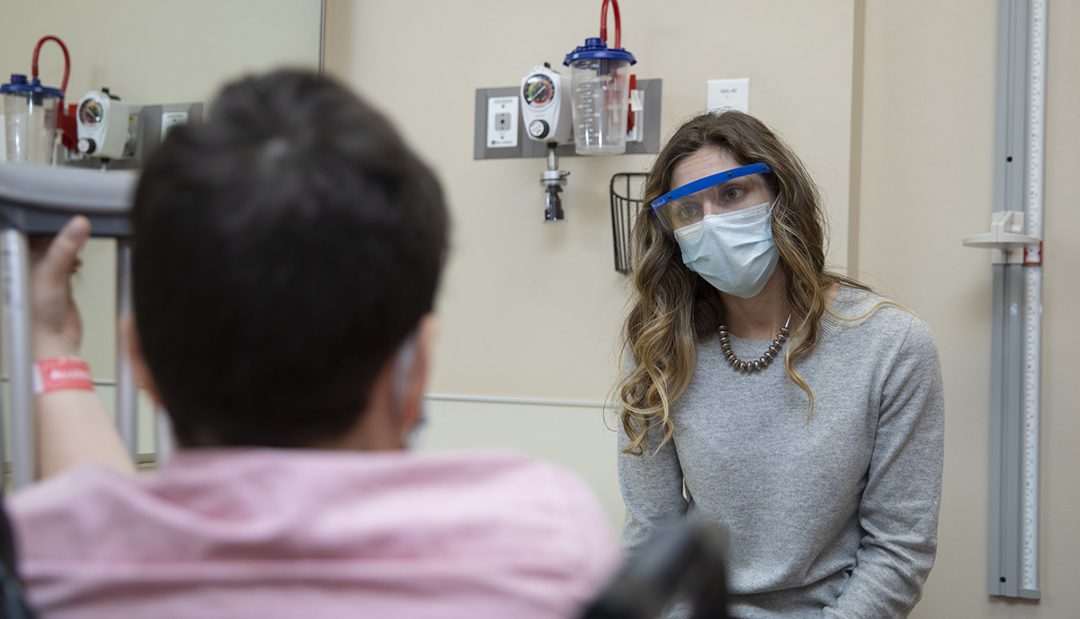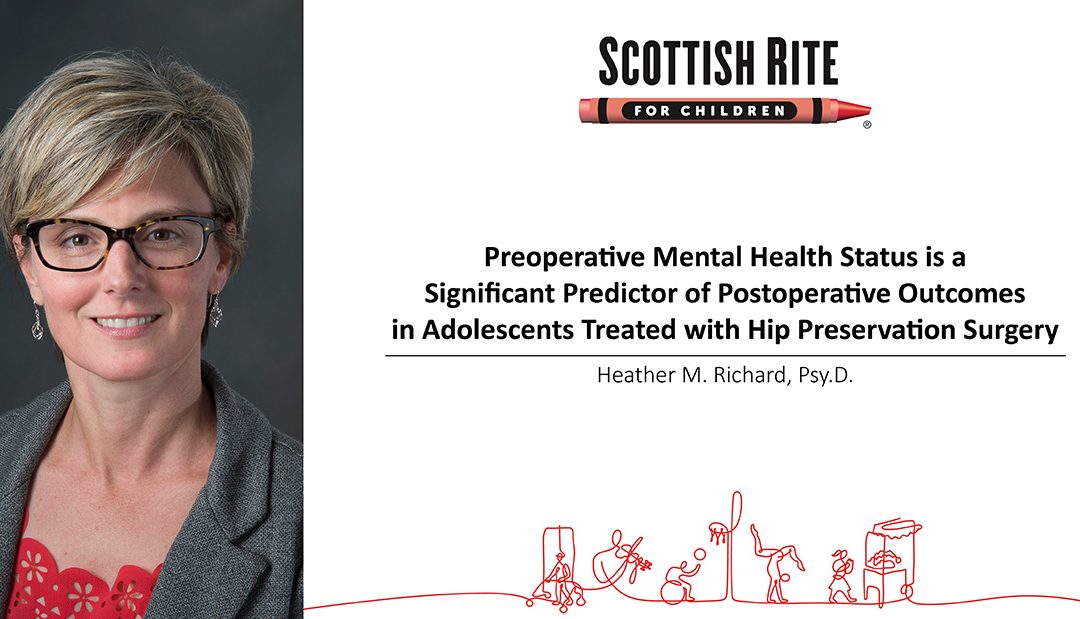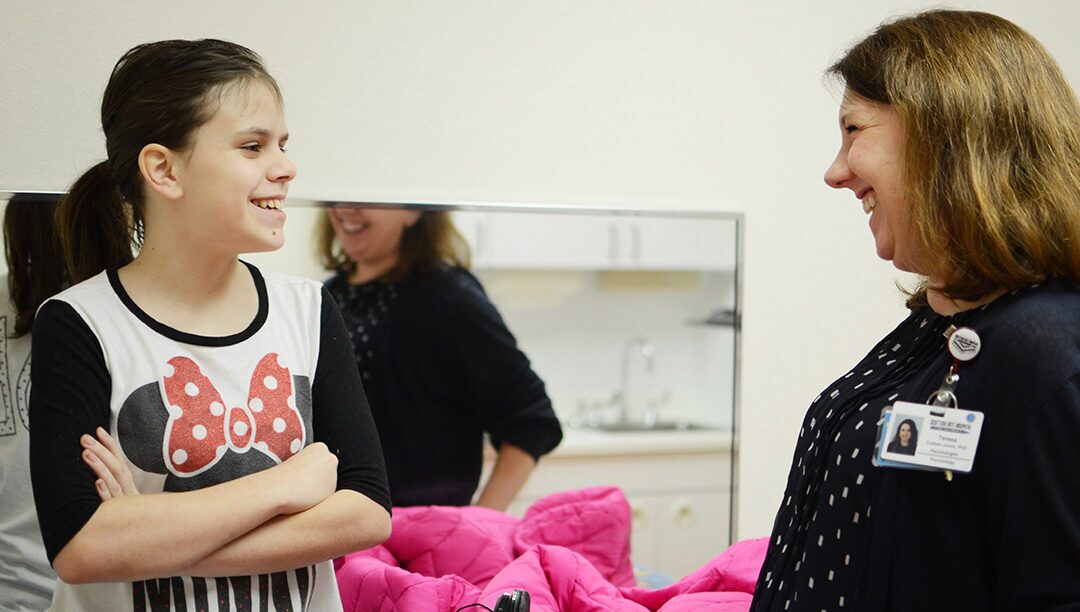


The Importance of Caring for the Whole Child
At Scottish Rite for Children, our mission is to provide the best and most innovative care. Through ongoing research, our experts are able to give treatment options for a child’s condition, whether common or complex.
In addition to our six centers for excellence, we have other areas of treatment which allow us to provide care for the whole child – mind, body and spirit. Scottish Rite’s Psychology department is comprised of pediatric psychologists who focus on biological, social and emotional aspects of our patients who are diagnosed with challenging medical conditions. Ongoing clinical research informs best ways to help our patients and families.
Recently, the Psychology and Orthopedics departments published an article in the Journal of Children’s Orthopaedics titled, Preoperative Mental Health Status is a Significant Predictor of Postoperative Outcomes in Adolescents Treated with Hip Preservation Surgery. The purpose of the study was to identify and evaluate possible factors that may influence postoperative outcomes: pain, function and mental health symptoms.
Our psychologists play a crucial role in our patients’ lives – especially those who are preparing for significant treatment. From previous studies, factors such as depression, anxiety and family function have been shown to impact pain and coping after surgery. Knowing this, our team wanted to proactively identify and help prepare these children. Before scheduling surgery, the child and family work with the psychologist to prepare and plan. As part of our integrated approach to care, patients in this study, who were prepared with the psychologist, showed improvements in pain, health-related quality of life and mental health symptoms.
Overview and Key Findings:
- 58 hip preservation surgery (HPS) candidates were given measures to assess pain, quality of life and mental health symptoms, such as anxiety and depression, before surgery and six months after surgery.
- Results: 78% of patients reported one to three years of pain prior to hip preservation surgery. All pain scores significantly decreased at six-months post-operatively.
- Pre-operative mental health scores significantly predicted post-operative pain scores and mental health symptoms decreased significantly.
- Patients who were seen by Psychology two or more times prior to scheduling surgery reported better six-month post-operative outcomes than those seen only once.
- Conclusions: HPS candidates evaluated pre-operatively by Psychology, as part of an integrated treatment approach, demonstrated statistically significant improvements in pain, health-related quality of life and mental health symptoms.
Director of the Psychology department, pediatric psychologist and lead researcher on this study Heather M. Richard, Psy.D., acknowledges the strong impact this care model can have on patients going through surgery. “The results of this research validate the importance of integrating psychology into a child’s plan of care,” says Richard. “We work hand in hand with the orthopedic doctors to make sure each patient receives individualized care – for their bones and joints, as well as their minds. Through research like this, we are able to identify any potential concerns the child and family may have going into the procedure, making sure we work through those as a team to maximize outcomes.”
Learn more about our Psychology department.

D Magazine: Scottish Rite for Children is Studying the Impact of the Pandemic on Children and Young Adults
Researchers at Scottish Rite for Children are looking into the impact of the pandemic on kids, teenagers and adults. One study is analyzing current and former patients 18 years of age or older, volunteers, community members, and others to see the psychological impact of the pandemic, while the other is studying the virus’ impact on children’s activity levels and sports.
Read more on D CEO, about how the pandemic may have coaxed some children into more outside play, while canceling organized activities for others.

CultureMap Dallas: Top Texas Pediatric Hospital on Why Pain Management for Kids Matters
Scottish Rite Hospital is committed to treating the whole child – mind, body and spirit. As integrated members of the hospital’s orthopedic team, our psychologists play an important role before, during and after a child receives treatment.
Staff pediatric psychologist Teresa Collins-Jones, Ph.D., explains how pain is multidimensional and can affect different aspects of a child’s life. Our psychology experts have the ability to talk through the patient’s concerns and fears to address how they are feeling.
Read the full article and learn about how our team integrates psychology into the care of the hospital’s patients.

